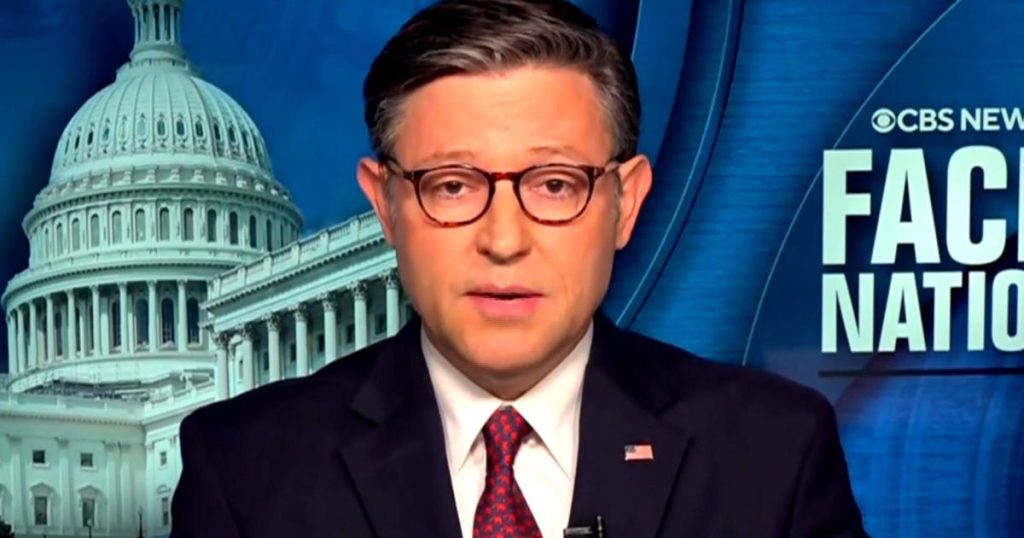House Speaker Mike Johnson recently dodged questions regarding potential violence similar to that of the January 6th Capitol riot. Instead, Johnson emphasized the importance of focusing on election integrity, highlighting the actions taken at federal, state, and local levels to prevent chaos following the 2020 elections. He acknowledged the challenges faced during the COVID election year but did not directly address concerns about political violence.
Johnson’s comments come amidst growing concerns about the security of upcoming elections and the potential for violence from extremist groups. The aftermath of the January 6th insurrection has raised alarms about the state of democracy in the United States and the need to safeguard the electoral process. Johnson’s deflection of questions related to violence suggests a reluctance to address these critical issues directly, instead opting to focus on election integrity measures.
The lingering threat of political violence and unrest has prompted calls for enhanced security measures and a renewed focus on preventing future incidents. Johnson’s statements reflect a broader debate within the political landscape about how to address the underlying causes of violence and extremism while upholding democratic principles. The divide between those who prioritize election integrity and those who prioritize addressing violent extremism underscores the complexity of the current political climate.
As the country prepares for upcoming elections, the specter of violence looms large, prompting heightened concerns about the potential for unrest and conflict. Johnson’s reluctance to engage directly with questions about political violence raises questions about how policymakers are approaching the issue and what steps are being taken to mitigate the risks. As the anniversary of the Capitol riot approaches, the need for a comprehensive and coordinated response to the threats facing democracy becomes increasingly urgent.
In the face of ongoing challenges to the democratic process, including disinformation, polarization, and political violence, leaders like Mike Johnson play a critical role in shaping the national discourse and guiding responses to these threats. Johnson’s emphasis on election integrity as a means of preventing chaos and violence reflects a broader trend towards prioritizing procedural safeguards as a solution to political unrest. However, the effectiveness of such measures in addressing the root causes of violence remains uncertain.
Ultimately, the debate over how to address the potential for Jan. 6-like violence underscores the need for a comprehensive and multifaceted approach that combines measures to protect election integrity with efforts to address the underlying drivers of extremism. As the country grapples with the legacy of the Capitol riot and looks ahead to future elections, the challenge of ensuring the security and stability of the democratic process remains paramount. Leaders like Mike Johnson will be instrumental in shaping the response to these challenges and steering the country towards a more resilient and inclusive democracy.


